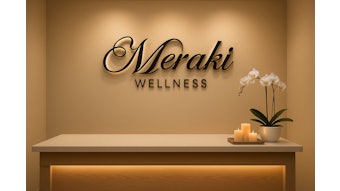
In the world of esthetics, effective and client-centered communication is the cornerstone of building trust and credibility with your clients. However, certain phrases can unintentionally undermine your authority and leave clients with an uneasy feeling about you which can affect your bookings, sales and referrals. Here’s a guide on phrases to avoid and why steering clear of them is crucial for your professional success.
1. "It’s Up to You”
While it might seem like a way of offering choice, this phrase can convey a lack of confidence and expertise. Clients seek your guidance, so be decisive and provide expert recommendations. Instead of saying "It's up to you," which can leave clients feeling uncertain and unsupported, consider using more authoritative and reassuring phrases such as "I recommend," "My professional advice is," or "Based on your skin type and concerns, the best option would be." These alternatives not only project confidence, but also reinforce your role as a knowledgeable expert.
For instance, if a client is unsure about which facial treatment to choose, you could say, "I recommend the hydrating facial for you today, based on your concerns," or "My professional advice is to start with the acne treatment to address your breakouts." This approach not only helps clients feel more secure in their decisions, but also builds trust in your expertise.
2. "Oops"
This seemingly innocent interjection can trigger anxiety in clients, as they may interpret it as a sign of something going wrong during the treatment. To maintain a calm and professional atmosphere, it's essential to select more reassuring language. Instead of saying "Oops," which can cause unnecessary worry, consider using phrases that convey control and calmness such as "Just a moment," "Let me adjust this," or "Everything is fine, just a minor tweak."
For example, if you accidentally drop a tool or need to readjust something during a treatment, you could say, "Let me just fix this," which keeps the situation under control and reassures the client that there's no cause for concern. Additionally, avoid using other potentially alarming phrases like "Uh-oh" or "Oh no." Choose more calm responses like "I'll take care of that," or "Let me handle this for you." By maintaining a composed and confident demeanor, you help your clients feel secure and trust in your expertise, ensuring their experience is as relaxing and enjoyable as possible.
3. "No Worries"
While the intention behind saying "no worries" is to reassure and comfort your clients, it can inadvertently minimize the client's concerns or make them think there might actually be something to worry about. Additionally, using "no worries" instead of "you're welcome" comes across as unprofessional and shifts the focus to you rather than maintaining a client-centered approach.
For instance, if a client apologizes for arriving late, instead of saying "no worries," you could respond with, "I understand, thank you for letting me know. Let’s get started." This response acknowledges their situation without diminishing their concern. Similarly, if a client expresses anxiety about a treatment, rather than saying "Oh, no worries," you could say, "I’ll take good care of you, and we’ll make sure you’re comfortable throughout the process." This conveys empathy and assurance without downplaying their feelings.
4. "Good Luck"
Uttering this phrase can come off as dismissive and unfriendly (even when you have the best intentions), implying a lack of investment in your client's well-being. Instead, choose words that convey confidence and reassurance. For instance, rather than saying "Good luck" after recommending a skin care routine or a new treatment, try using phrases that show your commitment to their success and convey a sense of partnership in their journey. Examples include "I’m confident this will work well for you," "You’ve got this, and I’m here to support you," or "I’m excited to see your progress with this treatment."
Furthermore, phrases like "I know you’ll do great with this," or "You’re in good hands, and "I’m always here if you need anything," can be used to reinforce your dedication to their care. These alternatives not only show your expertise, but also demonstrate your genuine concern for their results and well-being. For example, if a client is trying a new product and feels uncertain, saying "Good luck" might make them feel unsupported. Instead, you could say, "I’m confident this product will make a significant difference in your skin. Please let me know if you have any questions or need further guidance."
5. "You Do You"
This phrase is not only too casual; it suggests a lack of engagement and interest in your client's specific needs. Instead of using this dismissive expression, strive for language that communicates your dedication and involvement in their skin care journey. For instance, instead of saying "You do you" when discussing treatment options or skin care routines, use phrases that demonstrate your commitment to their unique needs and goals. Examples include "I recommend this approach because it suits your skin type and concerns," "Let’s work together to find the best solution for you," or "Your needs are important to me, and I’m here to help you achieve the best results."
Other alternatives could be "I’m here to support you every step of the way," or "I’m dedicated to tailoring this treatment to meet your specific needs." These phrases show that you are fully engaged and invested in their skin care journey. For example, if a client is hesitant about a new skin care regimen, you could say, "I believe this regimen will really benefit your skin. Let’s monitor your progress and adjust as needed."
Related: The Least Credible Claims in Skin Care
6. "I'm Not Sure"
It’s okay to be unsure; it happens to the best of us! However, admitting uncertainty without a resolution plan can make clients uneasy and undermine their confidence in your expertise. Instead of saying “I’m not sure,” reassure them with proactive language such as “I’ll find out for you,” demonstrating your commitment to their queries and reinforcing your enthusiasm for providing accurate and helpful information. For instance, if a client asks a question about a treatment or a product you’re unfamiliar with, rather than saying “I’m not sure,” you could respond with, “That’s a great question. Let me double-check and get back to you.” Other alternatives include, “Let me consult with a colleague and call you tomorrow,” or “I’ll do some research and provide you with a detailed answer by Monday.” These responses show that you are taking their concerns seriously and are dedicated to finding the right answers for them.
Steer clear of other phrases that indicate uncertainty without a plan, such as “I don’t know” or “I have no idea.” Instead, use more constructive language like “I’ll make sure to get you the information you need,” or “I’ll follow up on that and let you know as soon as possible.” By using expressions that highlight your willingness to seek out answers and provide solutions, you maintain the client’s trust and convey a sense of reliability and professionalism.
7. "I'm Just Here to Provide The Service"
This phrase diminishes your role as a trained expert and undervalues the comprehensive care you bring to your clients. Clients seek more than just a service; they desire expertise, a pampering experience, guidance, and a genuine commitment to their well-being. Instead of saying, “I’m just here to provide the service,” highlight your expertise and dedication by saying, “I’m here to ensure you receive the best care and achieve your skin care goals.”
If a client, for example, expresses concerns about their skin condition, you could respond with, “I’m here to offer customized recommendations and support your unique skin care journey.” This reassures the client that you are invested in their long-term results, not just the task at hand. Other alternatives include, “My goal is to help you achieve the best possible outcomes,” or “I’m here to provide expert care and tailored advice.” These responses underscore your commitment to their needs and highlight your role as a knowledgeable professional.
8. "It's All The Same to Me"
Indifference in language translates to a lack of care and concern, which can leave clients feeling undervalued and ignored. Instead of saying, “It’s all the same to me,” show your commitment and vision for your client by expressing genuine interest in their unique needs and preferences. This reassures them that you are dedicated to their individual care. For example, if a client is unsure about choosing between two peel treatments say, “Let’s discuss what each option offers and see which one aligns best with your skin care goals.” This demonstrates that you are engaged and invested in helping them make an informed decision.
Other helpful options include, “I want to make sure we choose the best option for your skin,” or “Let’s find the treatment that will provide the most benefit for your specific concerns.” These responses highlight your commitment to personalized care and show that you value their unique needs. Avoid using other phrases that imply indifference, such as “It doesn’t matter too much to me,” or “Either way is fine.” Instead, choose more empathetic language like “I want to ensure we choose the most effective solution for you,” or “Your satisfaction is my priority, so let’s find what works best for you.” By expressing genuine interest and dedication, you reinforce your role as a caring and attentive professional.
9. "It's Totally Fine if You Decline"
While offering flexibility is essential, this phrase may convey a lack of enthusiasm for your client's decision, potentially making them feel undervalued. Remember: the goal is to emphasize the value of their time and patronage to build a stronger connection and show that you genuinely care about their experience.
For example, if you suggest a new treatment and the client seems hesitant, you could respond with, “I believe this treatment could significantly benefit your skin, but I understand if you need more time to decide.” This demonstrates your confidence in your recommendation while respecting their decision-making process. Other alternatives include, “I’m here to help you find the best options for your skin,” or “I want you to feel comfortable with your choice, so please let me know if you have any questions.” These responses show that you are invested in their satisfaction and willing to support them in making an informed decision. For instance, if a client is unsure about purchasing a product, instead of saying, “It’s totally fine if you decline,” you could say, “This product has shown great results for many clients with similar concerns. I’d be happy to provide more information or samples if that helps you decide.”
10. "Your Guess is as Good as Mine"
Admitting ignorance without a follow-up plan suggests disinterest and can erode client trust. Instead of saying this phrase, change course and use a proactive approach by assuring clients that you will investigate further. This demonstrates your commitment to finding the answers they need and reinforces your role as a knowledgeable professional. Say, for instance, a client asks about the differences between some of the masks that you offer and you’re unsure, you could respond with, “That’s a great question! Let me take a moment to review the ingredients.” This shows that you are dedicated to providing accurate and helpful responses. Other alternatives include, “I’ll find out and let you know,” or “I’m going to consult with a colleague to ensure you get the best answer.” These responses show that you are taking their query seriously and are committed to thoroughness.
Avoid using other phrases that imply indifference, such as “I have no idea,” or “Who knows?” Instead, select language that shows your willingness to seek out answers, like “I’ll make sure to get the information you need,” or “Let me do some research and get back to you shortly via email.” By conveying a proactive attitude, you reinforce your dedication to their satisfaction and position yourself as a reliable source of expertise.
11. "Gotcha"
While the phrase “Gotcha” generally indicates that you understand something or are confirming that you heard what was said, it can come off as casual, impatient, or curt, which is not ideal in a professional spa setting. Clients come to the spa seeking a sense of calm, care, and attentive service, and using overly casual language can diminish the sense of professionalism and attentiveness they expect. Furthermore, “Gotcha” can give the impression that you are trying to move the conversation along quickly, which might make the client feel rushed or undervalued. The informal nature of this phrase can detract from the professional atmosphere of the spa. Clients expect a higher level of formality and respect, which helps to build trust and confidence in your expertise.
Better alternatives include phrases like “I understand,” which clearly communicates that you have comprehended what the client has said. It’s professional and reassuring, showing that you are attentive and considerate. Using “Absolutely” conveys enthusiasm and positivity, reassuring the client that you are fully committed to addressing their needs or concerns. “Certainly” is both polite and affirming, demonstrating respect for the client's input and reinforcing a sense of professionalism. “Thank You for Sharing That” shows appreciation for the client’s communication, making them feel heard and valued, and encourages further open dialogue, which is essential for building strong client relationships.
Closing Thoughts
The language we use with our clients can significantly influence their perception of our expertise and professionalism. Avoiding certain phrases helps ensure that we communicate with clarity, confidence, and care, fostering trust and satisfaction. By being mindful of how our words are received, we can enhance the overall client experience and reinforce our role as trusted skin care professionals.
Emphasizing positive, proactive, and reassuring language not only bolsters our credibility, but also strengthens the client-practitioner relationship, leading to more bookings, loyal customers and referrals. Ultimately, choosing our words wisely helps create a more supportive and successful environment, allowing us to shine as confident and committed estheticians.










